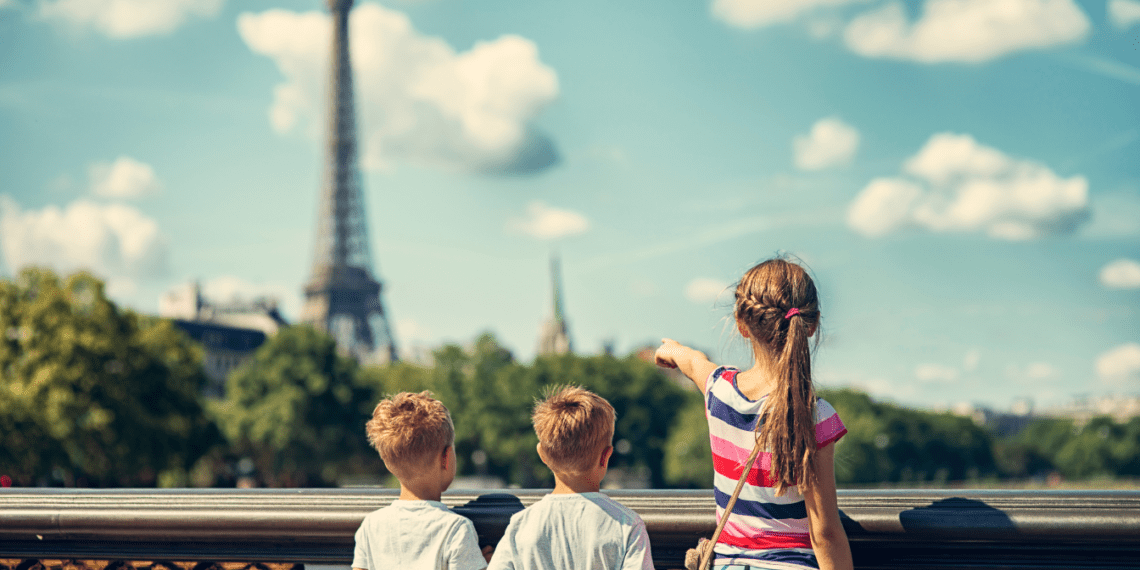Have you ever dreamed of strolling on the Champs-Élysées or sipping Bordeaux in Paris? Maybe, exploring the French countryside sounds intriguing too. France pulls in millions each year, with its rich culture, beautiful landscapes, and famous food and wine.
Planning a French trip can feel both exciting and overwhelming. But fear not, this guide is here to help. Whether it’s your first time or you’re a frequent visitor, we’ve got all you need. Learn how to plan a perfect trip and enjoy every moment in this amazing country.
Key Takeaways
- France is a top tourist destination, offering a wealth of cultural, culinary, and natural experiences
- This guide will provide you with all the information you need to plan your French vacation, from transportation to accommodations
- Discover the best times to visit, the must-see destinations, and how to navigate the French way of life
- Immerse yourself in the country’s rich history and traditions, from the iconic landmarks of Paris to the charming rural villages
- Savor the flavors of French cuisine and explore the renowned wine regions that make this country a true epicurean delight
Ready to embark on an unforgettable journey through the heart of Europe? Let’s uncover the magic of France together!
Introduction
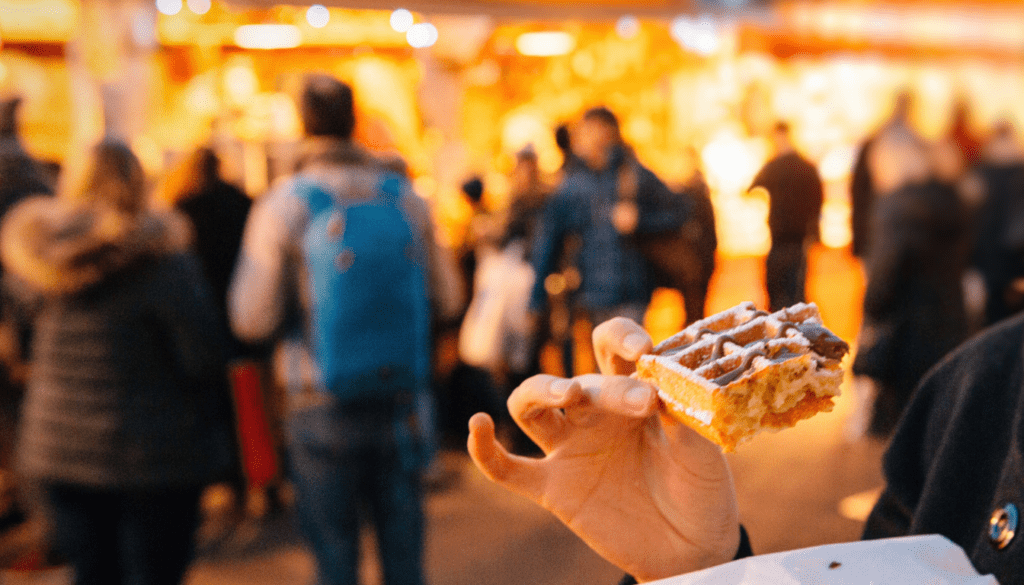
France is an amazing place to visit. It’s known for its rich culture, famous places in Paris, and beautiful scenery. You can see everything from famous art galleries to quaint small towns and lovely coastal landscapes. There’s so much to do in France, making it a perfect destination for anyone.
Reasons to Visit France
France has a lot to offer. In Paris, you can visit the Eiffel Tower and the Arc de Triomphe. There are also beautiful villages in the French Riviera. You can explore the amazing Louvre Museum, Château de Versailles, and its gardens if you love history. And, for food lovers, France is famous for its great regional specialties and world-class wines.
Overview of French Culture and Attractions
France is not only about its famous sites. It’s rich in cultural heritage. You can visit places like the Musée Picasso in Paris. This museum is in a 17th-century mansion. There are also secondhand markets where you might find special souvenirs and treasures.
In France, there are all kinds of museums. You can see art, wine, and even a museum about smoking. These places give a real look into French culture.
“France is not just a place, it’s a state of mind.” – Jacqueline Bouvier Kennedy
Best Time to Visit France
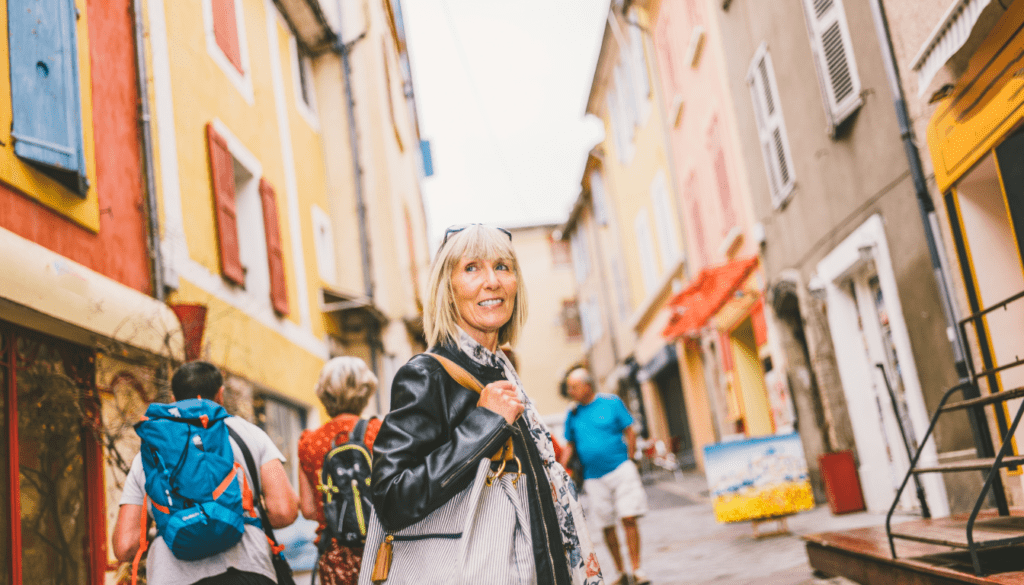
Knowing when is the best time to visit France is key to a great trip. Whether you want a comprehensive guide for France or just the top travel times, it’s all about the seasons. Understanding when to go can make your journey memorable.
Peak and Shoulder Seasons
The peak time, from June to August, is warm and sunny, perfect for seeing famous places. But, many tourists mean higher costs and more crowds, especially in Paris and the French Riviera.
To avoid the hustle and save money, pick spring (April-May) or fall (September-October). You’ll find less people, good weather, and cheaper travel and stays.
Weather Considerations
France has various climates that affect your trip. The south, like the French Riviera, has a Mediterranean vibe: warm, dry summers and cool, wet winters. Meanwhile, the north and center have a more traditional weather, cold winters and mild summers.
- Spring (April-May): 55°F to 68°F, flowers start to bloom, and it’s not too crowded.
- Summer (June-August): Up to 84°F, it’s busy but beautiful.
- Fall (September-October): 61°F to 77°F, crowds lessen, and it’s time for Beaujolais Nouveau.
- Winter (December-March): Below freezing, fewer visitors, good for Christmas markets and skiing.
When planning your full guide for visiting France, or if choosing the best time to travel to France, think about the weather and local events. Spring and fall often strike the best balance with their weather, crowd, and cost.
Planning Your Trip
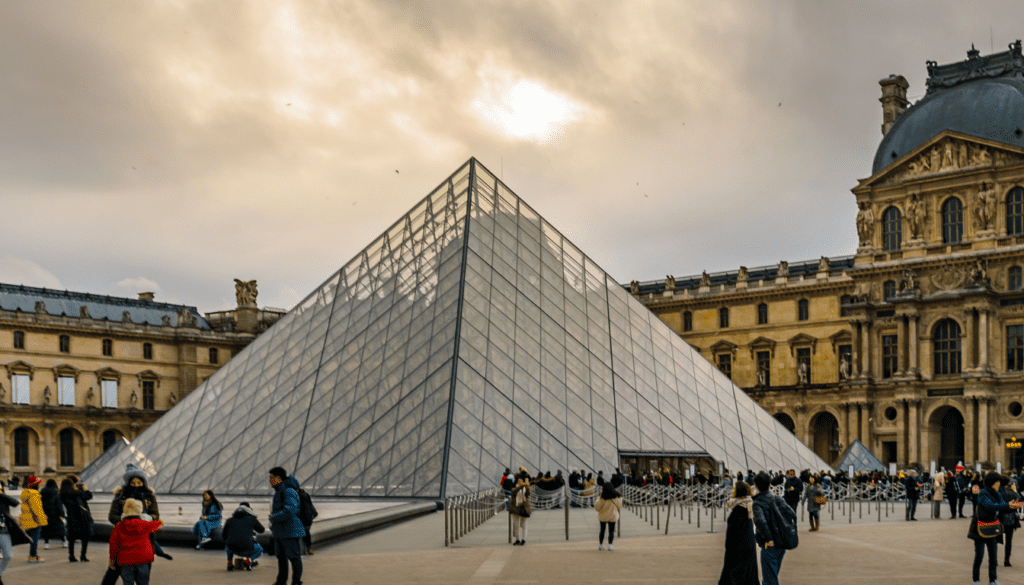
Planning your trip to France starts with checking your travel documents. U.S. citizens need a passport with six months of validity. You might also need a visa, based on your stay’s purpose and length.
Travel Documents and Entry Requirements
When you budget for your France trip, think about the costs. This includes airfare, where you’ll stay, how you’ll get around, meals, and what you’ll do. Prices change with travel dates, where you go, and how you spend. Early France itinerary planning can help you control costs and enjoy your trip more.
Budgeting for Your France Vacation
For keeping your Budgeting for France in check, remember these hints:
- Book your flights early, about 120 days ahead, for the best deals.
- Book your stay well before you go, especially in busy places like Paris.
- Look into different ways to travel, like trains or rental cars, for savings.
- Set a budget for meals and fun. Know about tipping and customs for local spending.
- Find deals on passes or free things to do to save money.
Thinking ahead and watching your spending means a wonderful, affordable France vacation.
“Detailed information on dining etiquette in France, French culinary history, menu deciphering, reservations, and tipping customs can provide insights into interacting with locals effectively.”
Getting Around France

Traveling through France is easy, thanks to many ways to get around. From lively Paris to the quiet French countryside, moving is fun and simple.
Transportation Options
The TGV high-speed trains make getting between big cities a snap. With speeds up to 300 km/h, you’ll be in places like Bordeaux from Paris in about two hours. SNCF also runs many other trains, including the quiet and comfy iDTGV.
Want to see more and have your own schedule? Renting a car is perfect. Just remember, in snowy mountain areas, you’ll need winter tires and chains. Also, remember the priorité au droite rule for driving.
Inside cities, public transport like metros and buses are fast and cheap. Cities like Paris, Lyon, and Marseille have bikes you can share and special paths for cycling. This makes exploring on two wheels a breeze.
Flying domestically is a quick way to cover more ground. Or, opt for a scenic boat ride around places like Burgundy and Brittany. It’s a unique and calm way to see the country.
| Transportation Option | Key Features |
|---|---|
| High-Speed TGV Trains | – Reach speeds up to 300 km/h – Efficient travel between major cities – Comfortable and amenity-rich iDTGV trains available |
| Renting a Car | – Offers greater flexibility and access to remote areas – Winter tires and snow chains required in certain regions – Priorité au droite rule for giving right-of-way at intersections |
| Public Transportation | – Metro, bus, and tram systems in major cities – Bike-sharing schemes and dedicated cycling paths – Cost-effective way to get around |
| Domestic Flights | – Quick way to cover longer distances – Convenient for reaching remote destinations |
| Canal and River Boating | – Scenic and relaxing way to explore regions like Burgundy and Brittany – Offers a unique travel experience |
With plenty of ways to travel, you can pick what fits your trip best. This way, exploring France will be smooth and fun.
The full guide for visiting France
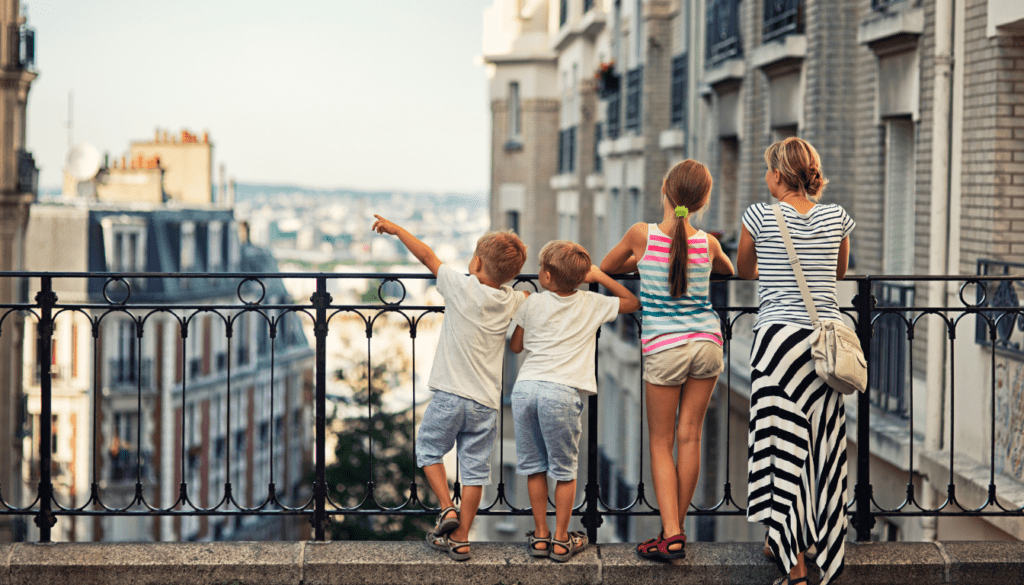
France is known for its rich culture, beautiful scenery, and delicious food. If you’re planning your first visit or going back for more, this guide is for you. It’ll help you enjoy every bit of your France trip.
This guide helps you see Paris’s famous spots and the French countryside’s hidden gems. You’ll learn the best times to go, how to get around, where to stay, and what to do. It’s packed with cultural experiences that will make your trip unforgettable.
Learn about France’s amazing food, wine, art, and history. You’ll get tips on how much to spend, what you need to enter the country, and how to act like a local. This will get you ready for your adventure in France.
So, start exploring the full guide for France. It’s your key to a journey you won’t forget.
Insider Tips for a Seamless France Vacation
Here are some tips for a great time in France:
- Know the visa rules for the Schengen area since France is part of it.
- Have enough euros for your daily spending; not all places take cards.
- Learn some French to make your trip better and show you respect the language.
- Follow local customs, especially at dinner and on public transport.
- Watch out for pickpockets in busy tourist spots.
- Stay updated with travel alerts to avoid any problems like strikes.
| Book Title | Price | Pages | Weight |
|---|---|---|---|
| DK Eyewitness Travel Guide: France | $19.87 | 672 | 1.95 lbs |
| The French Way: Aspects of Behavior, Attitudes, and Customs of the French | $13.74 | – | – |
| Sixty Million Frenchmen Can’t Be Wrong: Why We Love France but Not the French | $13.29 | 672 | 1.95 lbs |
Remembering these tips will help you move around France with ease. And you’ll have a trip to remember.
“France is not just a place, it’s a state of mind.” – Unknown
Open up to the French lifestyle. Use this guide to fully explore and enjoy France. Get ready for a magical journey!
Top Destinations in France
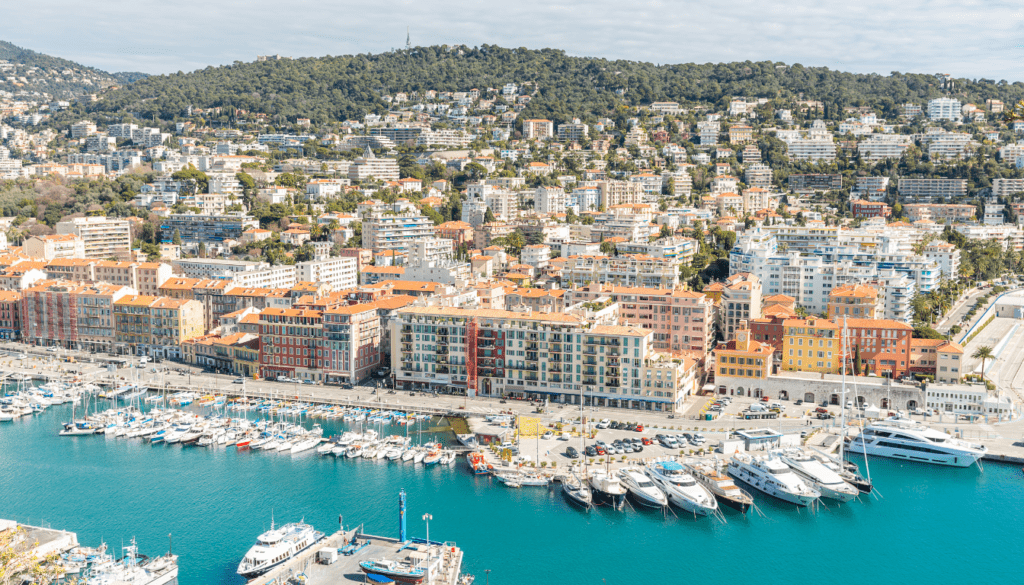
France is full of amazing places to visit. Each spot shows a bit of the country’s deep culture. You can see everything from Paris’s famous sites to the beautiful towns of the French Riviera. Exploring these top spots is key to understanding everything that France offers.
No visit to France is complete without seeing Paris. Known around the world, Paris has many attractions to see. The Eiffel Tower is a must-see, and Notre-Dame’s architecture is stunning.
Don’t miss the Louvre’s huge art collection or the Champs-Élysées’s lively vibe.
Leaving the capital leads you to the beautiful French Riviera. This area has pretty seaside towns, clean beaches, and amazing nature. Make sure to visit places like Cannes and Villefranche-sur-Mer to soak in the local culture and beauty. This is all part of the guide for visiting France you shouldn’t miss.
France has so much to offer, from its long history to its famous food. You can choose to explore Paris’s busy streets or relax on the Mediterranean coast. No matter where you go, France promises a journey you won’t forget, filled with its unique charm.
Accommodations in France
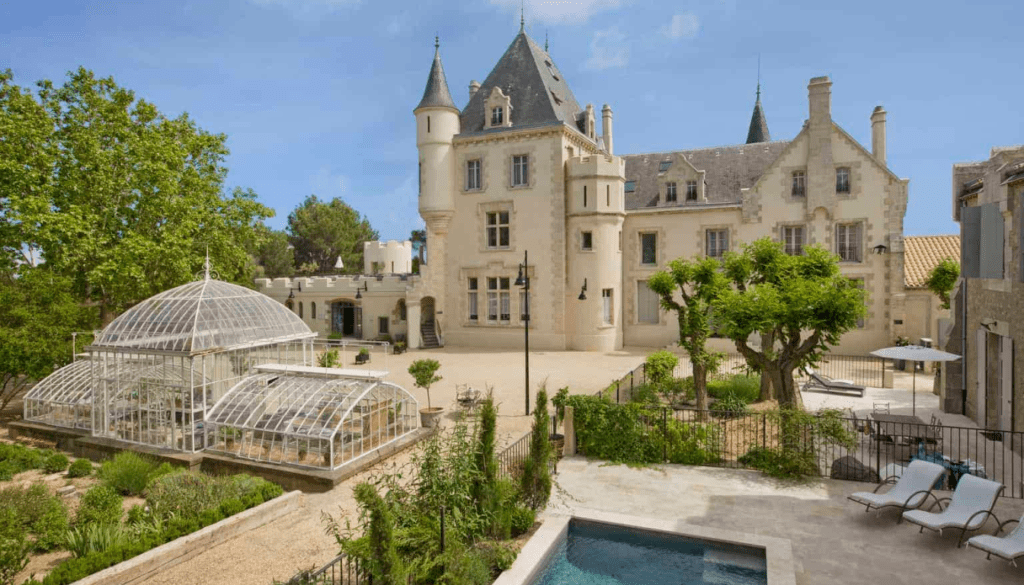
France has a wide range of places to stay. You can find everything from historic châteaus to budget-friendly hostels. Make sure to think about where you want to be, what’s important to you, and how much you want to spend. This will help you pick the perfect place for your trip.
If you’re looking to save some money, you can find rooms for €35-40 across most of France. Prices can go up to €60 in Paris and €100 in the French Riviera. Keep in mind that the star rating of a hotel often matches its price, but you might still find good deals at hotels with no stars or one star.
At hotels, breakfast can range from €6 to €30 per person. You can choose not to have breakfast if you want to save money. Also, if you’re staying more than three nights, you might be able to get a lower rate. In off-peak times, it’s easier to negotiate prices. You can find cheap accommodations at chain hotels near the highway, where rooms for three people start at about €24.
For a genuine local experience, try staying in a chambre d’hôte. These B&Bs cost between €50 and €120 for two, and breakfast is usually included. In rural areas, you can also find gîtes for longer stays. For solo travelers or people on a tight budget, youth hostels with dormitory beds are a good option. Prices at hostels range from €12 to €26 per night, and some include breakfast.
If you prefer to be closer to nature, consider staying in gîtes d’étape or refuge huts for hikers and bikers. These places cost €15-25 per person, per night. Campsites in France vary from one to four stars. Some have just the basics, while others have things like swimming pools. Look for the Camping Qualité and Clef Verte labels to find campsites that are eco-friendly and maintain high standards.
Regardless of where you choose to sleep, France is known for its top-notch hospitality. You’re sure to have a comfy and memorable visit. Check out the full guide for visiting France for more helpful info.
| Accommodation Type | Price Range | Key Features |
|---|---|---|
| Hotels | €35-40 (simple double rooms) €60 (Paris) €100 (French Riviera) | Graded from 0-5 stars, breakfast optional |
| Bed & Breakfasts (Chambres d’hôtes) | €50-120 for two people (including breakfast) | Authentic, local experience |
| Self-Catering (Gîtes) | Varies for longer stays | More space and privacy, especially for families/groups |
| Youth Hostels | €12-26 per night (sometimes including breakfast) | Dormitory-style accommodations, popular with solo travelers and backpackers |
| Hiking/Biking Accommodations (Gîtes d’étape and Refuges) | €15-25 per person | Informal, hostel-style accommodations for outdoor enthusiasts |
| Campsites | Varies based on star rating (1-4 stars) | Basic facilities to extensive amenities, eco-friendly options available |
“France’s commitment to hospitality ensures a comfortable and memorable stay as you explore the full guide for visiting France.”
Cultural Experiences
France is known for its rich culture. Exploring its art and history is a must when you visit. The Louvre Museum in Paris is famous worldwide. It’s just one place to see incredible art. Additionally, France has many art galleries and museums. They all show the country’s creative spirit.
Monet’s gardens in Giverny and Honfleur have inspired Impressionist painters. The literary world in Paris was shaped by famous authors. These include Gertrude Stein, Ernest Hemingway, and Simone de Beauvoir.
Museums and Art Galleries
The Louvre in Paris is huge. It has famous works like the Mona Lisa. There’s also the Venus de Milo. France has many more galleries and museums. They all show amazing art.
Places like Monet’s gardens in Giverny and Honfleur inspired artists. In Paris, famous writers made their mark. These include Gertrude Stein and Ernest Hemingway.
Festivals and Events
France is full of festivals and events. The Cannes Film Festival is world-famous. Bastille Day is celebrated every year. It shows France’s traditions.
The Chez Michou Cabaret offers dinner and a show. It’s in Montmartre. The Chateau du Clos Luce is in Amboise. Leonardo da Vinci spent his last years there.
Areas like Avignon and the Luberon are full of history. They have medieval cities and villages. The Villandry Chateau has beautiful gardens. It’s a great place to learn.
France has something for everyone. For those who love art, history, or tradition, there’s plenty to explore. Its museums, galleries, and festivals are a window into French culture.
“France is a country that embraces its past while simultaneously celebrating its present and future. Exploring its cultural treasures is a truly transformative experience.”
For a deep cultural dive in France, Ophorus offers amazing tours. They show off France’s best spots. Their tours are made for travelers who love adventure. You get to see famous places and secret spots.
Outdoor Activities
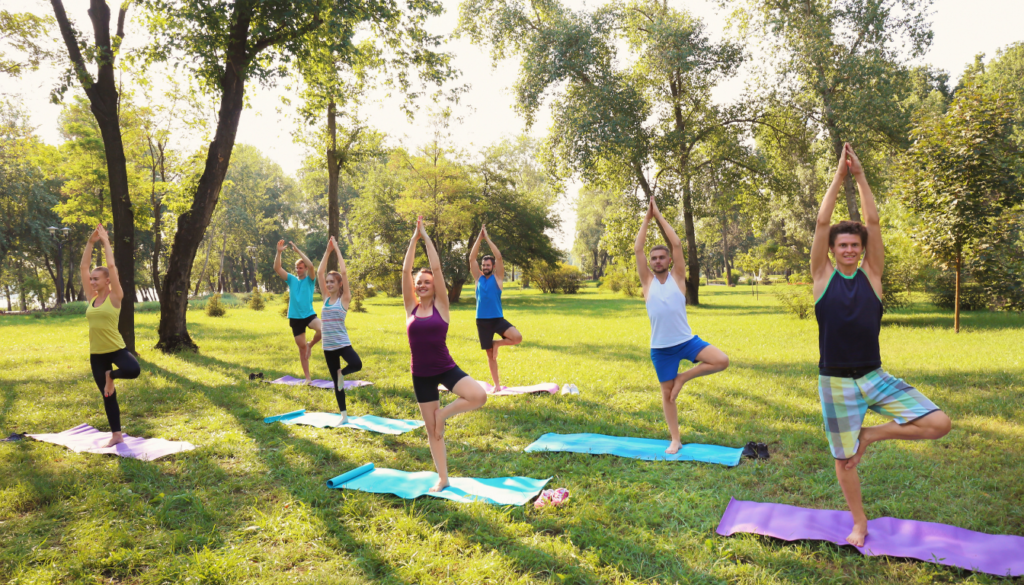
France’s landscapes provide lots of outdoor fun and chances to see its natural beauty. You can go from rugged coastlines to peaceful countryside, exploring the great outdoors. This is part of the full guide for visiting France.
Hiking and Biking Trails
In France, there’s a lot of hiking and biking routes through beautiful scenery. There are about 180,000km of long-distance footpaths (GRs), perfect for hiking. For those who love to bike, there’s roughly 60,000km of marked cycle paths. Many places have special lanes for cyclists.
Beach and Water Sports
France has amazing beaches perfect for water sports. You’ll find activities like swimming, kayaking, and paddleboarding. Places like the French Riviera and Normandy are great for these. If you’re looking for thrill, try hang-gliding and paragliding in the Hautes-Alpes of Provence or the Pyrenees. It costs around €160 a day.
If you love hiking, biking, or water fun, exploring the French countryside is for you. You’ll experience natural beauty and peace in France. There are lots of adventures waiting for you there, creating unforgettable memories from your visit to the full guide for visiting France.
Shopping and Souvenirs
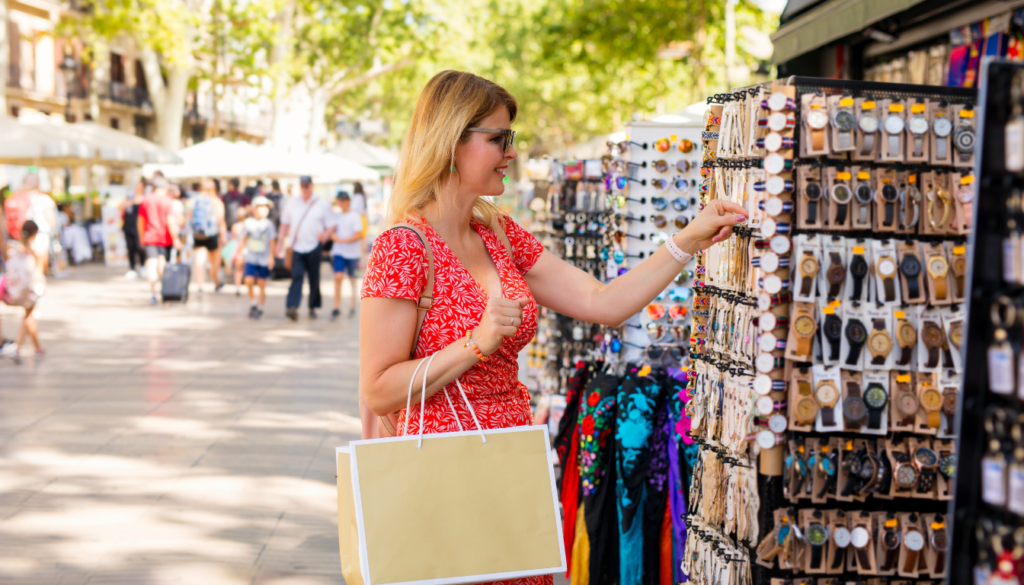
No trip to France is complete without a little shopping. There are many places to find special keepsakes. From Paris’s stylish shops to small craft studios across France, you can find unique items. Look for a fine French perfume, lovely pottery, or a warm scarf. These items can remind you of your journey.
The Champs-Élysées in Paris is a must-visit shopping spot. It’s home to big stores like Galeries Lafayette and Printemps. Here, you’ll find top fashion and beauty brands, as well as local items. Also, don’t miss the open-air markets in various cities. They offer local crafts, foods, and more.
Finding the perfect souvenir in France isn’t hard. There are choices for every taste and budget. Consider Ladurée macarons, which are 15 Euros for 8. Or maybe a Van Cleef and Arpels perfume or jewelry, ranging from 50 to 80,000 Euros. For something more budget-friendly, Sel de Guérande sea salts from Brittany are around 5-10 Euros.
Looking for edible souvenirs? France has plenty to offer. A mustard set makes a nice gift, at 15 Euros. Foie gras canned sets range from 10 to 20 Euros. Cheese prices vary from 2 to 40 Euros. Don’t forget artisanal chocolates, which cost around 10-20 Euros.
France is also known for its arts and crafts. In Paris, check out La Vaissellerie for white dishes at 2 Euros a piece. Or visit the Lovin’ wine store to find exclusive French wines. These are lovely choices for memorable souvenirs.
France’s markets, shops, and artisan offerings make it a dream for shoppers. With so much to see and buy, you’re bound to find something special. Shopping in France is more than just making purchases. It’s about experiencing the country’s culture and traditions.
French Etiquette and Customs
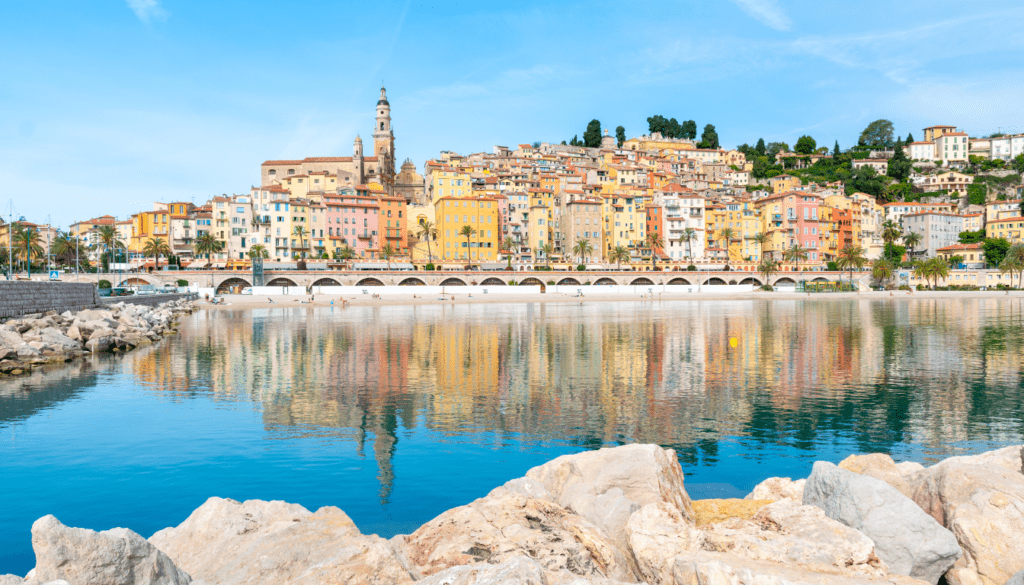
France holds many cultural gems, making it an exciting destination. By learning the local etiquette and customs, your trip can be even better. Let’s dive into the dos and don’ts, from how to greet to dining rules.
Greetings and Politeness
Say “Bonjour” when you meet someone in France, and you’re off to a good start. It shows you’re trying. Though many speak English, they might not want to. They love their language. If you must use English, speak slowly.
Being formal matters a lot too. Saying hi to everyone at work each day is normal. This shows how much they value being polite. Be kind and respectful—this will win you friends.
Dining Etiquette
Eating in France is an art. Know that dining out here is about more than just food. It’s about enjoying the moment. Let’s look at some must-knows.
- Waiters won’t rush you. They give you time to enjoy your meal without hovering.
- Asking for things like leftovers isn’t common. The French focus on the best, not the most.
- Give a tip when the service is good. 5-20% is common, depending on how you found the meal.
Enjoying a meal in a café is a big thing. Take your time with your food and coffee. This is the French way.
“The French believe in quality over quantity in restaurants, expecting portions to be just enough.”
Getting to know these cultural tips will make your trip to France smoother. Use these insights to have a more memorable and genuine experience.
Traveling with Children
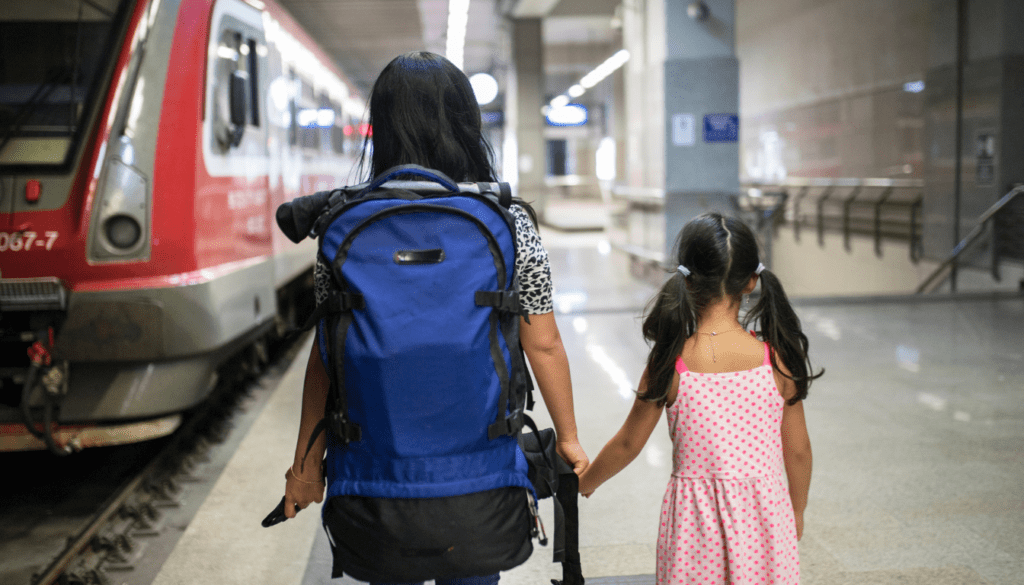
France is a fantastic place to visit with your family. It has so much to offer, from beautiful castles in the Loire Valley to fun science museums in Paris. Your kids can learn and have a great time. Just a bit of planning will make your trip to France unforgettable.
Many museums in France have free entry for kids. Some offer deals for families like a forfait tribu for two adults and two kids. These places also have games and workshops for children. Tourist offices in small towns may have fun activities like treasure hunts, perfect for families.
Kids are warmly welcomed in French restaurants. They often serve kids’ menus along with adult meals. Michelin-starred places might expect quiet children, but casual spots are family-friendly. These are great for a meal together.
France has something for every type of family getaway. You can choose from beach vacations, mountain hikes, or city tours. At ski resorts, kids as young as three can join snow garden classes. Parents with babies can also enjoy perks, such as skipping lines at museums.
France has unique places to stay, like treehouses and lighthouses, fun for all ages. There are also special events for teenagers, like cooking classes and music festivals. Teens can enjoy bike tours through beautiful regions like the Vélo Francette and ViaRhôna.
Planning your family’s trip to France can lead to lifelong memories. You might explore Paris’s art and culture, or the countryside’s natural beauty. France truly has something to offer every family member.
Useful French Phrases
Being an English speaker in France, knowing some basic French can really make your trip better. It helps with everyday talk and shows you respect the local way of life. Plus, it might help you make new friends.
A study found that 87% of visitors to France benefit from knowing a few French phrases. Also, 94% of French people like it when tourists try to speak French. It’s suggested that learning 18 key phrases can be a game-changer. So, a bit of language prep can really pay off.
The all-time favorite phrase for tourists is “Bonjour”. This word covers saying hello and good day and is used 28% of the time. Other useful greetings and phrases come in at 14%.
| Category | Percentage |
|---|---|
| Greetings and Introductions | 28% |
| General Phrases and Pleasantries | 14% |
| Directions and Assistance | 29% |
| Dining and Shopping | 21% |
| Emergency Situations | 8% |
Imagine you’re in Paris, needing to order in a café or asking for directions. Knowing a few essential French words can be a lifesaver. Studies show 93% of tourists have positive experiences by using simple French greetings. This simple start can lead to a richer travel adventure.
So, before heading to France, learn some important French phrases. Also, check out a guide to traveling in France. It will make locals happy and enrich your cultural experience.
Conclusion
This guide has all you need to plan your perfect trip to France. You’ve learned the best times to go and top spots to check out. Plus, we’ve shared inside tips on how to get around, find a place to stay, what to eat, and cultural experiences.
Do you love the lively feel of Paris, the calm of the countryside, or sunny beaches? France has it all. It’s a place that will truly amaze you and make you want to come back.
This full guide for visiting France is your friend for making great memories. Explore the amazing buildings, taste delicious food, and visit small, lovely towns. France really offers something special for all kinds of travelers.
Remember to use what you’ve learned here when you plan. Combine our tips with what you love to do to create a packed but fun schedule. Let’s start this adventure, and here’s to making unforgettable memories in France!
FAQ
What are the top reasons to visit France?
France is a captivating country with lots to offer. It has bustling cities like Paris and calm villages. You can also explore beautiful coastlines and enjoy famous foods and wines.
What are the best times to visit France?
The best times are spring and fall. From April to June and September to November, you avoid crowds and find cheaper prices. The weather is also cooler.
What do I need to know about planning my trip to France?
Check your travel documents. U.S. citizens need a passport with at least six more months of validity. You might also need a visa, depending on your visit’s length and purpose.
What are the transportation options for getting around France?
You can travel by high-speed trains (TGV), rent a car, or use city transport like metros and buses. For long distances, there are also domestic flights.
What are the top destinations in France?
France has many must-see places. There’s Paris with its famous sites, the French Riviera with its stunning coast, and the peaceful countryside with its vineyards and villages.
What should I know about French cuisine and wine?
Trying French food and wine is a highlight of visiting. You can taste various regional dishes and visit famous wine areas. It’s a big part of the culture.
What kind of cultural experiences can I have in France?
France is full of culture. You can see historic sites, fine arts, and join local events. These experiences are important for fully enjoying your visit.
What outdoor activities can I enjoy in France?
France’s landscapes offer lots of fun outdoor activities. You can hike or bike through the countryside, or enjoy the coast with various water sports.
What should I know about French etiquette and customs?
Learning about French customs is helpful. It makes your trip smoother and more enjoyable. Etiquette on greetings and dining is good to know.
Is France a good destination for family travel?
Yes, France is perfect for families. There are many fun activities and places for all ages. You’ll also find family-friendly places to stay.
How important is learning French for my trip?
It’s not a must to speak French fluently. But knowing a few phrases can make your trip better. It helps you connect with locals.





















